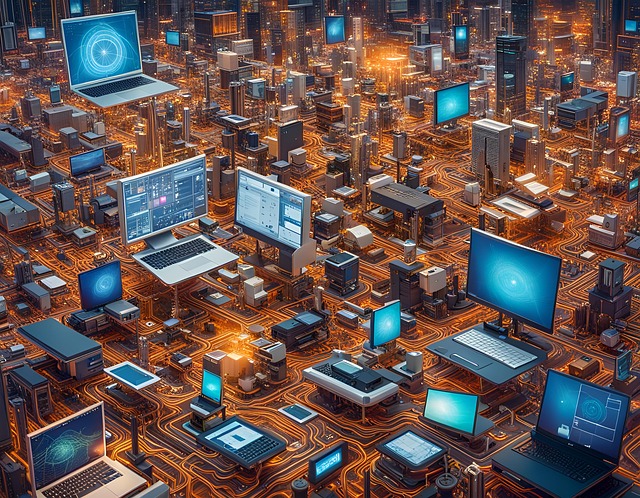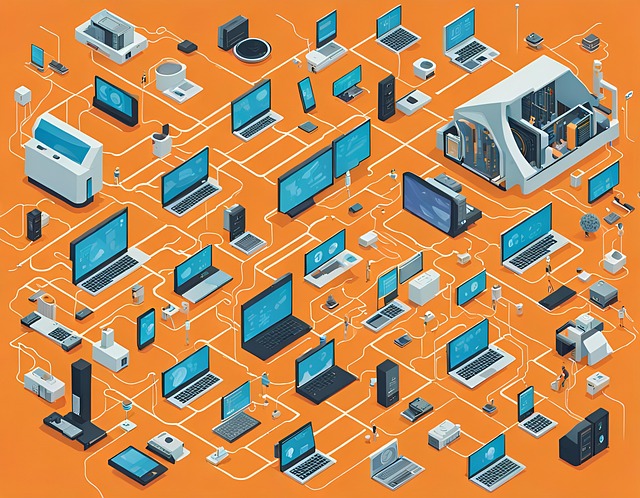AI is transforming long-term rentals with smart home systems that prioritize efficiency, safety, and sustainability. Through automation, AI predicts maintenance needs, ensures housing code compliance in real-time, and personalizes living spaces for tenants while optimizing energy use and reducing costs for landlords. This technology streamlines management, enhances convenience, and fosters a safer rental environment.
“The future of long-term rentals is here, thanks to the harmonious integration of Artificial Intelligence (AI) and smart home systems. This transformative technology duo is revolutionizing the rental experience for both landlords and tenants.
This article explores how AI can enhance code compliance by automatically identifying and rectifying issues, ensuring tenant safety through advanced monitoring, and introducing automation that streamlines property management, making it more efficient and less burdensome for landlords.”
- Understanding AI's Role in Long-Term Rentals: How It Transforms the Rental Experience
- Integrating Smart Home Systems: Ensuring Code Compliance and Tenant Safety
- Automation Benefits: Streamlining Management for Landlords and Enhancing Tenants' Lives
Understanding AI's Role in Long-Term Rentals: How It Transforms the Rental Experience

Artificial Intelligence (AI) is transforming the long-term rental landscape, offering both tenants and landlords enhanced experiences through smart home integration systems. By leveraging AI, these technologies automate various aspects of housing management, ensuring code compliance and streamlining processes. For instance, AI algorithms can analyse property data to predict maintenance needs, reducing delays and potential safety hazards.
Moreover, AI enhances the tenant experience by personalising living spaces. Smart homes equipped with AI learn occupants’ preferences, automatically adjusting lighting, temperature, and security settings. This level of automation not only improves convenience but also contributes to energy efficiency and cost savings. In terms of code compliance, AI housing systems can identify potential issues, such as unsafe electrical installations or structural problems, by comparing real-time data against regulatory standards, thereby fostering safer rental environments.
Integrating Smart Home Systems: Ensuring Code Compliance and Tenant Safety

Integrating smart home systems into long-term rental properties offers a range of benefits, from enhanced convenience to improved energy efficiency. However, it’s crucial to address critical considerations for seamless AI housing operations and tenant safety. Property managers must ensure that these advanced technologies adhere to local housing codes and regulations, which often lag behind rapid technological advancements. Automation plays a pivotal role in achieving this balance; AI-driven systems can monitor and adjust various parameters, from temperature control to security measures, while adhering to the necessary standards.
By implementing robust code compliance mechanisms, smart home devices can automate tasks like detecting and reporting potential hazards, such as carbon monoxide leaks or faulty wiring. This automation not only ensures a safe living environment but also provides tenants with peace of mind. Moreover, these systems can collect and analyze data to optimize energy usage, potentially reducing utility costs for both landlords and tenants, thereby fostering a more sustainable residential experience.
Automation Benefits: Streamlining Management for Landlords and Enhancing Tenants' Lives

AI-driven long-term rental smart home integration systems offer a multitude of benefits, both for landlords and tenants. One of the most significant advantages is automation, which streamlines management processes for landlords. AI can handle tasks like scheduling maintenance requests, monitoring energy usage, and even predicting potential issues before they occur, ensuring smooth operation and timely resolution. This level of automation not only saves time but also reduces the administrative burden on landlords, allowing them to focus more on providing quality service.
For tenants, these systems enhance their living experience by offering personalized control over their home environment. Smart home technology allows for automated adjustments to lighting, temperature, and security settings, creating a comfortable and efficient space. Moreover, AI-driven systems can learn tenant preferences, suggesting tailored solutions that improve energy efficiency and contribute to code compliance. By leveraging AI housing code compliance automation, tenants enjoy a safer, more convenient, and environmentally friendly living environment.
The integration of AI and smart home systems in long-term rentals offers a promising future for both landlords and tenants. By embracing these technologies, we can streamline property management, enhance energy efficiency, and improve safety standards while adhering to the housing code. Automation plays a crucial role in this transformation, enabling landlords to manage properties more effectively and tenants to enjoy smarter, safer living environments. As AI continues to evolve, its potential to revolutionize the rental market is undeniable, promising a brighter, more efficient future for all involved.
